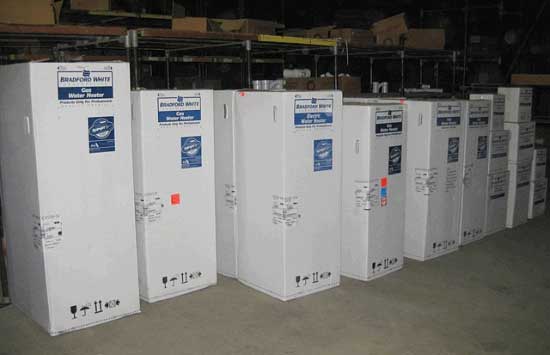Tips To Avoid Carbon Monoxide Poisoning
Heading into winter, we occasionally get the terrifying service call:
The improperly installed, failed, plugged, rotten, leaking or non existent flue gas venting.
Strangely enough, this is rarely the reason we are called out for, unless we are called after fire/rescue or the gas company has shut the system down.
Seeing a flue pipe lying behind the unit, rusted and rotten away, a plugged up chimney or an improperly installed furnace is not a good feeling. Since this, more so than the cracked heat exchanger is the greatest threat of CO poisoning we face.
These will quickly become major problems, since some of these flue gasses dumped in the house are then drawn back into the furnace, this “bad air” then causes very poor combustion and sky-rockets CO level in the home.
In many cases this results from long term neglect of a homes heating system, but some cases it can just happen overnight or over a summer. Leaves, sticks, dirt, birds, birds nests, squirrels, ducks, possums we have removed them all.
Here is a list of some of the important things you should regularly do or look at.
-
- Have your homes heating system cleaned and inspected once per year. Try to be home, and when your Technician arrives ask them to show you and explain your equipments venting. That way you know where it is and what it looks like. c
- If you have a forces air furnace, make sure the return air is not being drawn from the utility room. This is a problem that will cause even the best chimney to downdraft. So ask your Technician to rule this out too, it is simple, may even sound silly. But if you do not know for certain, ask.
-
- Have him open and inspect it if you an actual masonry chimney.
-
- All metal pipes should be looked at for signs of rust, moisture or dried water drips, these indicate condensing in the pipe. This is a good indicator there may problem. So do this on a regular basis it only takes a few minutes.
-
- If you have a masonry chimney make sure the metal pipe(s) going in are sealed.
-
- With masonry chimneys look for signs of water on the bricks too. This can be as easy as being wet or signs of old water drips but also could just be a white powdery material stuck to bricks. Again this is signs the gasses are condensing early and that is not what we want.
- Be sure your masonry chimney or even a “B-Vent” style is capped. This will help keep the animals from falling down the chimney when overcome by the gasses or crawling down looking for a warm sleeping spot. Either way we don’t want them there.
This is not meant to be a “scare you” article, but more of a “be sure you know” article. Properly installed, maintained and used heating equipment is our goal. Always remember your heating system protects your most valuable possessions, your family and your house. Give it a little care and attention, it and you deserve it.

Why Choose Us
Your Local HVAC Experts
- Same-day emergency services
- Free estimates on replacements
- Fully stocked trucks for fast service
- Upfront pricing
- Background-checked technicians
- Flexible financing options
- Military, veteran, and senior discounts


